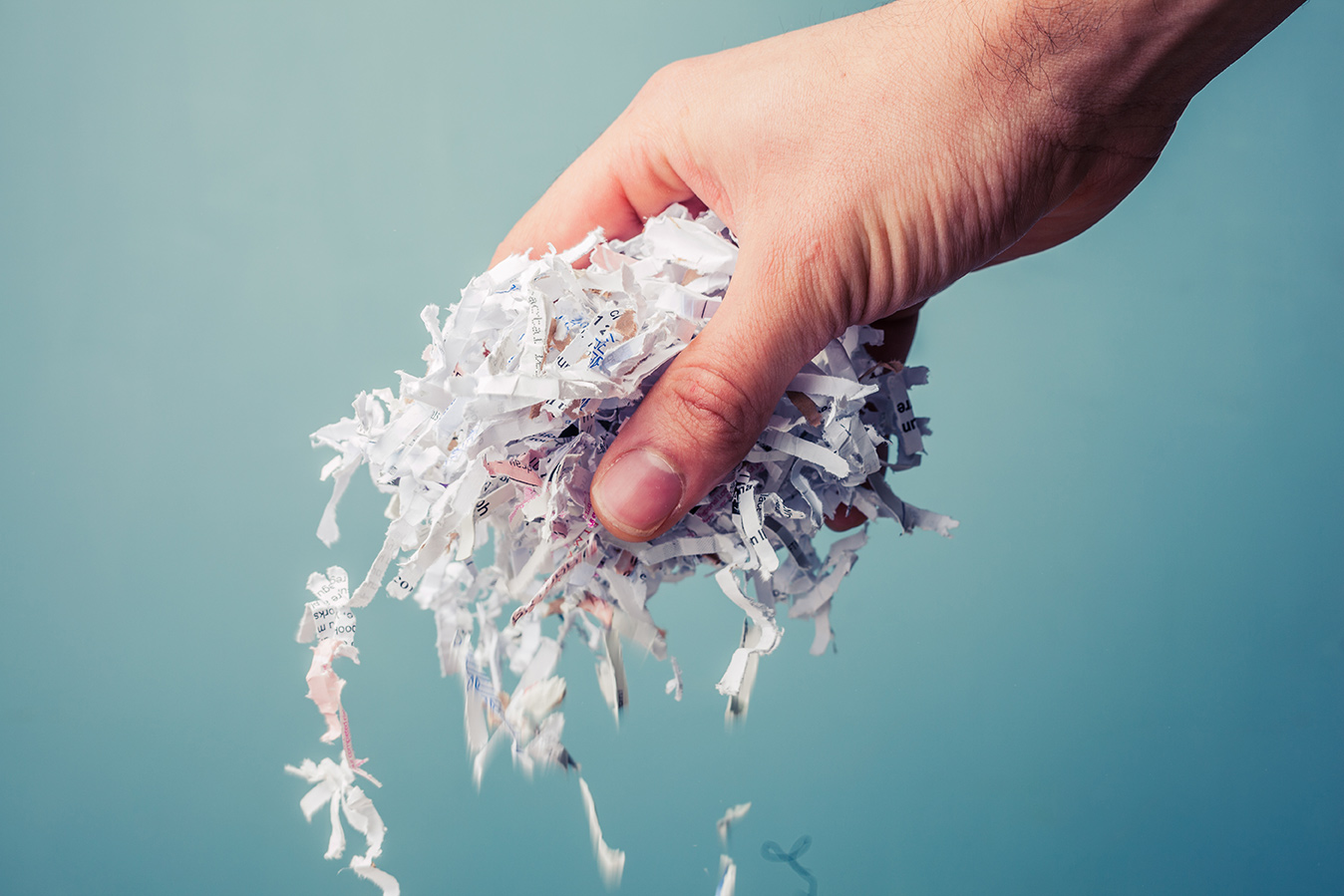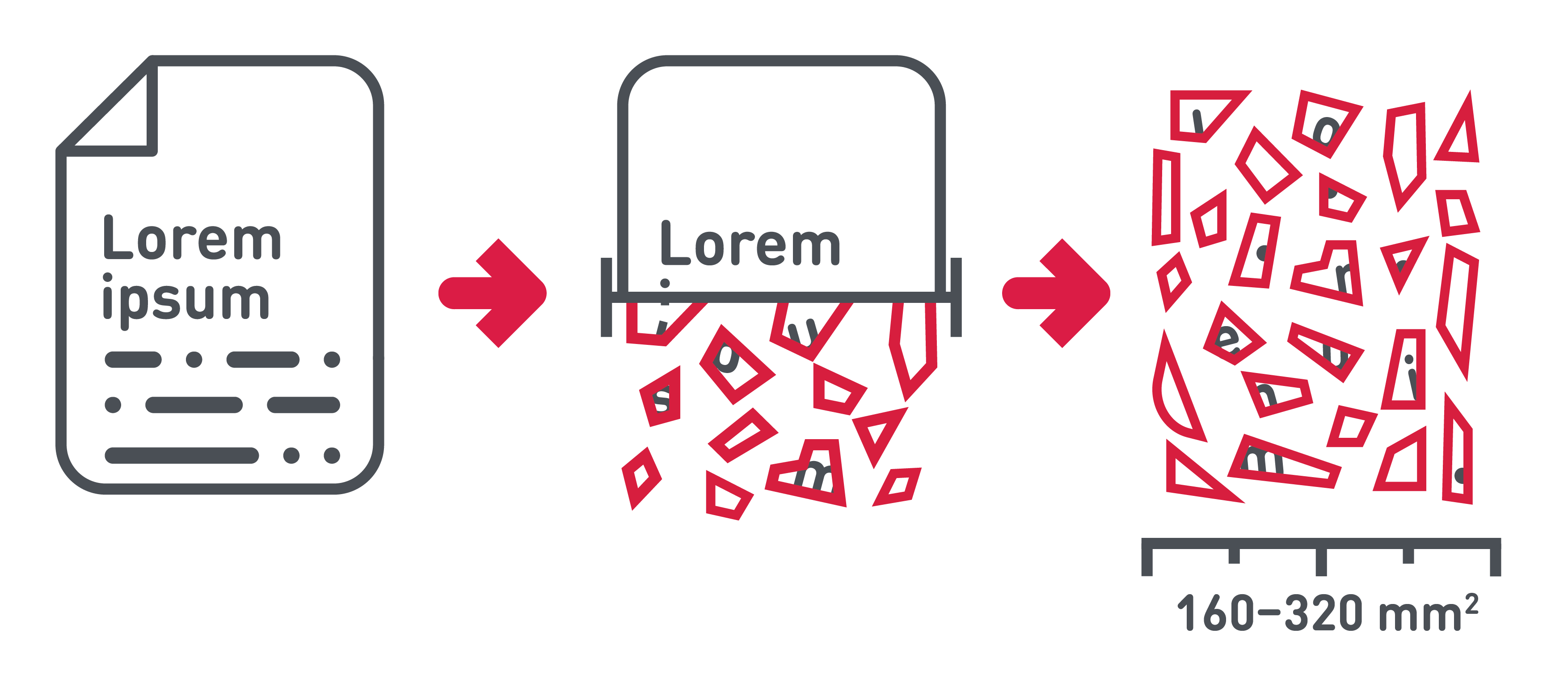Who should you trust with the destruction of your documents?
Secure destruction of business documents is an important final step in the efficient document management system. We may remember to ensure proper document storage, but we often forget to destroy the documents once their retention period has passed.

Many companies first consider destroying some of their documents when they begin to run out of space in their own archive rooms. Often, this is also the time when companies decide to scan the documents and convert them into electronic format, preferably upon receipt, to avoid the paper form from the start. But what happens if the need for a specific paper document arises, but the document has already been destroyed?
No need to worry about destroying paper documents
Doubts and fears that electronic documents have no legal validity in legal and other administrative procedures are totally unfounded. According to the Protection of Documents and Archives and Archival Institution Act (ZVDAGA), safely protected documents in digital form correspond to original documents if they are securely stored in accordance with the adopted internal rules.
It is important, however, that the internal rules correspond with the provisions of the Act, implementing regulations and uniform technological requirements. If we have acted in accordance with the internal rules, we can safely destroy paper documents immediately after digitizing and definitely after the passing of the retention period.
Not every document destruction method is secure
By securely destroying documents, we will prevent unauthorized persons from accessing our business documentation, which may contain personal and other confidential data. But not every document destruction method is secure, so we should be careful who to hire to destroy our documents.
The options that seem cheapest and most convenient at first may later prove fatally wrong. Inappropriately destroyed documentation may lead to considerable commercial damage and loss of reputation, its amount a multiplier of the savings made from document destruction.
Therefore, there should be no dilemma when deciding on the destruction method: always choose shredding with a trusted provider.
The questions we should ask before choosing the document destruction provider:
- Where and how will the material be transported?
- When will the material be destroyed?
- How will the documents be destroyed?
Observe the principles of secure document destruction
#1 When the retention period expires, we destroy the documents
Businesses are required by law to retain their documents for a specific period of time. It is important to destroy these documents upon expiry of their applicable retention periods. Holding on to documents that contain personal data past their retention end date may put the company at risk of violating personal data protection laws.
#2 Choose shredding as a secure document destruction method
The optimal document destruction method depends on the type and sensitivity of data contained. Compressing paper documents into bales is not a secure practice. If we remove the wires that hold the bales together, compressed documents are still fully legible. Therefore, always choose shredding.
#3 Pay attention to the security level of shredding
The DIN 66399 standard defines seven specific security levels of shredding. The higher the level, the smaller the size of shredded particles. Level 1 is suitable for general documents, while Level 7 is suitable for strictly confidential data with the highest security precautions. Level 3 with maximum particle surface area of 3.2 cm2 is recommended for sensitive and confidential data.

#4 Be present at shredding
The best way to verify that our documents are destroyed as agreed is to be present at shredding or appoint a person to be there in our place. Either way, a Certificate of Destruction must be issued to you when the documents are destroyed.
Prevent business loss
Secure shredding prevents access to the documents that contain business, confidential or personal data. Unauthorized access to such information may cause considerable business loss which often cannot be measured in money, as well as loss of trust and reputation.
Want to know more? Contact us!



